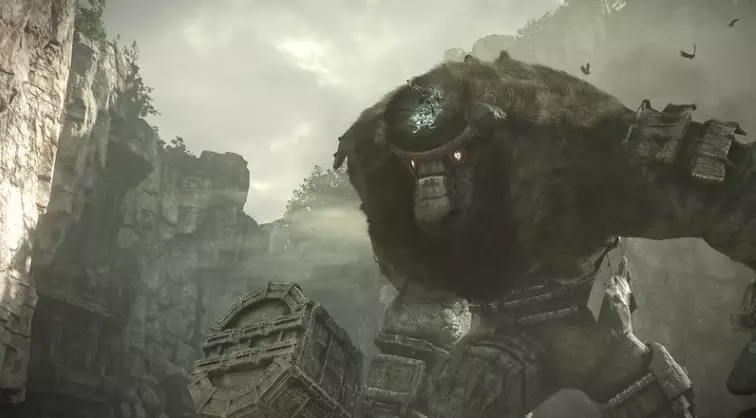For over a decade, video game enthusiasts have hoped for a cinematic adaptation of the beloved game, *Shadow of the Colossus*. This iconic title, originally released in 2005, has earned a dedicated following due to its extraordinary storytelling and artistic design. The game invites players into a hauntingly beautiful world where they must defeat titanic beings to resurrect a lost love. Despite the critical acclaim and cult status, the transition from gaming to film has proven to be fraught with challenges. Currently, momentum seems to be building thanks to comments from director Andy Muschietti, who recognizes the game’s masterpiece status and has expressed renewed optimism for the project. However, questions surrounding financing and studio interest could shape its fate.
Since the film’s initial announcement in 2009, various directors have been attached to the project, including *Chronicle*’s Josh Trank. Muschietti, who stepped in as director in 2014 after gaining acclaim for his work on *It*, remains enthusiastic yet realistic. His recent interview revealed that while he’s seen positive elements in the script, the crucial aspect may hinge on financial backing. He pointedly mentioned the disparity between the budget they desire and what studios are willing to allocate, suggesting that financial viability will be essential to turn this ambitious adaptation into a reality.
Muschietti’s trajectory reflects an industry landscape that frequently pushes passion projects to the periphery in favor of more commercially viable ventures. The potential realization of *Shadow of the Colossus* could lead to a resurgence of interest in video game adaptations if executed correctly. However, the lack of mainstream appeal may complicate studio negotiations as they aim for profitable outcomes.
One of the larger challenges adapts the narrative and themes of *Shadow of the Colossus* into a cinematic format. While the game’s storyline is minimalistic, its emotional depth lies in the atmosphere and the player’s connection to the colossal beings they confront. Translating that interaction into a visual medium requires careful consideration, as many video game adaptations have failed due to a lack of understanding of what makes the source material resonate. Muschietti’s acknowledgment of the masterpiece status of the game suggests he respects its legacy, a promising indication that he might navigate these hurdles with finesse.
Although the *Shadow of the Colossus* movie may not see the light of day imminently, the growing demand for video game adaptations in Hollywood shows no signs of slowing. With multiple projects slated for 2025, like *Minecraft*, *Until Dawn*, and *Mortal Kombat 2*, it is evident that producers are keen to tap into the treasure trove of gaming lore. Meanwhile, the success of HBO’s *The Last of Us* continues to set a precedent for high-quality stories drawn from video games. As interest in adaptations grows, the question remains: will the cinematic world find a way to honor the depth and artistry of *Shadow of the Colossus*? Only time will tell if this journey will culminate in a stunning representation that does justice to its source material.

